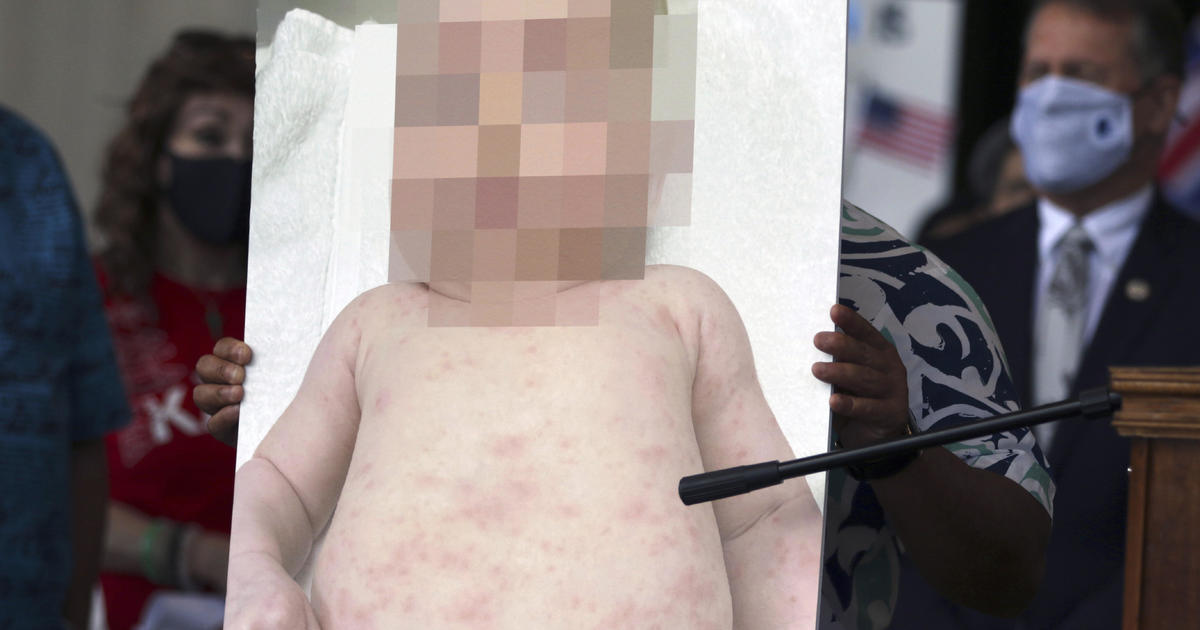2020 census could undercount 4 million people — particularly Latinos and blacks
Washington — The 2020 census is at the center of a contentious legal battle stemming from the Trump administration's controversial decision to include a question on U.S. citizenship to the nationwide survey. Now, a new report says the census could undercount more than 4 million people, particularly in Latino and African American communities.
A report released Tuesday by the non-partisan think tank Urban Institute found that in one scenario analyzed, the proposed addition of a citizenship question, along with other factors like underfunding of the Census Bureau and fear in immigrant communities, could fuel a massive undercount in next year's census not seen since 1990.
Diana Elliott, one of the report's authors and a senior research associate at the institute, said the group's study shows that the projected undercount would disproportionally affect young blacks and Latinos. Non-Hispanic whites and people over the age of 50, on the other hand, are likely to be overcounted by the census, she added.
"It's really a matter of fairness. When you think about the census, it's not just a matter of accuracy, you also want this to be fair because so much depends on the count," Elliot told CBS News.
Census figures are used by the federal government for congressional apportionment — the process by which seats in the House of Representatives are allocated among states — and to distribute resources and funds to state and local jurisdictions across the country. The data is also used by businesses to determine new ventures and advertising in different communities.
The potential undercount, according to the report, will negatively impact states like California, New York, Texas and Georgia with large immigrant and African American communities. In California alone, 1.98% of its population — or nearly 800,000 people — are at risk of being undercounted.
Meanwhile, states like West Virginia, Vermont and Montana with smaller communities of color are likely to experience overcounting, the institute forecasts.
Responding to the report, Census Bureau spokesperson Michael Cook told CBS News the agency is working on a "robust" campaign to inform the public that participating in the census is "safe, easy, and important."
"The law protects every response to every question. Census Bureau employees swear a lifetime oath to protect responses," Cook added in a statement. "By law, your responses are confidential and cannot be used against you in any way."
The spokesperson acknowledged that the census faces "known challenges" and urged communities to get involved to ensure the count next year is accurate.
New undercount projection follows revelation about Republican strategist
The new projections come as a recent filing in the court fight over plans to include a citizenship question to the census — which have been blocked by three judges in lower courts — alleged that a Republican strategist played an important role in the administration's decision.
Plaintiffs in one of several legal challenges to the question's addition said in a filing last week that Thomas Hofeller, a now deceased longtime political consultant prominent in Republican circles for designing advantageous electoral maps, helped craft the rationale used by the administration to implement the proposed change to the decennial questionnaire.
Hofeller, according to evidence cited by plaintiffs, concluded in an unpublished 2015 study that the inclusion of the citizenship question on the census would allow the government to draw political maps that would be advantageous to "Republicans and Non-Hispanic Whites." He then pushed the Trump transition team to add the question and, according to the plaintiffs, ghostwrote a portion of a draft of the letter the Justice Department sent the Commerce Department in 2017 to request the change to the census.
When Commerce Secretary Wilbur Ross, who oversees the Census Bureau, announced he was reinstating the citizenship question in March 2018, he said it was in response to a request from the Justice Department for better citizenship data to assist its enforcement of the landmark Voting Rights Act of 1965 — a rationale also found in Hofeller's files.
Both the Justice and Commerce Departments have strongly denied the allegations in the new evidence cited by the plaintiffs, accusing them of spreading "conspiracy theories."
For many, however, the new revelation, which comes weeks before the Supreme Court is expected to issue a ruling on the citizenship question's addition, represents evidence that the Trump administration's proposed change was designed to expand the electoral power of the Republican Party.




